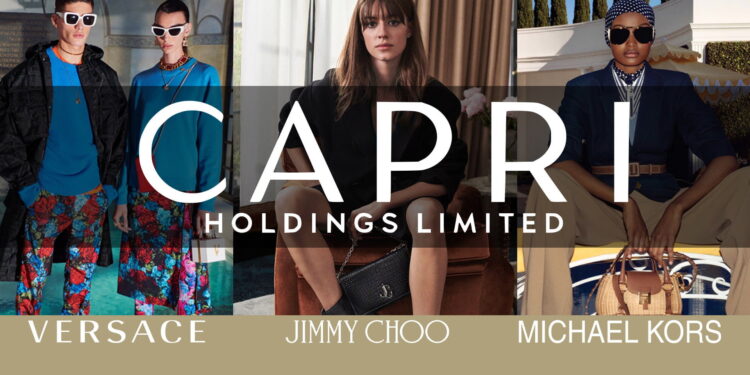- Tapestry will acquire Capri Holdings for $8.5 billion, the companies announced.
- The deal would create an American fashion giant that brings Coach, Kate Spade, Stuart Weitzman, Versace, Jimmy Choo and Michael Kors under one house.
- Tapestry has pushed to elevate its brands and appeal to a new generation of shoppers.
Tapestry, the fashion conglomerate behind Coach and Kate Spade, will acquire competitor Capri Holdings in a $8.5 billion deal announced Thursday.
The transaction will create an American fashion giant that — while still not quite as large as its European competitors — will be better positioned to compete in the luxury market. It brings together six fashion brands: Tapestry’s Coach, Kate Spade and Stuart Weitzman and Capri’s Versace, Jimmy Choo and Michael Kors.
Together, the company will have the size and scale to reach more customers across the globe and better compete in the luxury market, Tapestry CEO Joanne Crevoiserat said on a call Thursday morning. She said the combination pulls together “six iconic brands” that have a presence in more than 75 countries and drive over $12 billion in annual revenue.
In a CNBC interview, she said the acquisition will help Tapestry reach a broader base of customers across ages and incomes. Michael Kors draws younger, more diverse shoppers, and Versace and Jimmy Choo attract wealthier customers.
“It does increase our access to the luxury market and the higher-end consumer segments in luxury,” Crevoiserat said.
Shares of Capri surged 56% in early trading to just under the $57 per-share deal price, while shares of Tapestry fell roughly 12%.
The deal comes as Tapestry and Capri have seen weaker business in North America. In quarterly reports in May, both companies spoke about American consumers becoming more cautious around spending.
Crevoiserat said the timing of the acquisition is based on the long-term strategy of the combined companies, not on current market dynamics. Yet she said the larger company will be able to better keep up with fast-changing customer tastes and the ups and downs of a global economy.
Capri, in particular, has been impacted by slowing sales. Its shares hit a 52-week low in late May as it cut its forecast. On an earnings call, the company said it saw weaker sales not only of Michael Kors, but also of its luxury brands Versace and Jimmy Choo, particularly at department stores. The company’s CEO, John Idol, said at the time that the company expected that softness to continue through the summer.
Tapestry, meanwhile, raised its full-year outlook in its most recently reported quarter.
Tapestry has pushed to elevate its brands and appeal to a new generation of shoppers. At Coach, for example, it has collaborated with popular brands and celebrities like Disney and Kirsten Dunst and debuted handbags that have resonated with Gen Z customers who discover items on TikTok.
Coach also narrowed the number of items it carries to the focus on bestsellers, keeping price points high by reducing markdowns. It’s started to run a similar playbook with Kate Spade.
Tapestry has also looked other parts of the world to drive growth, such as chasing higher sales in China.
“We’ve created a dynamic, data-driven consumer engagement platform that has fueled our success, fostering innovation, agility, and strong financial results,” Crevoiserat said in a statement. “From this position of strength, we are ready to leverage our competitive advantages across a broader portfolio of brands.”
Capri CEO Idol said the deal will give the company “greater resources and capabilities” to expand its global reach.
“We are confident this combination will deliver immediate value to our shareholders. It will also provide new opportunities for our dedicated employees around the world as Capri becomes part of a larger and more diversified company,” said Idol.
The boards of both companies have unanimously approved the acquisition and shareholders will receive $57 per share, a 59% premium on the 30-day volume average of Capri’s value. The deal is expected to close in 2024.
The deal is not subject to any financing conditions. It will be funded with bridge financing from Bank of America and Morgan Stanley in a combination of senior notes, term loans and cash, a portion of which will be used to pay some of Capri’s outstanding debt, the companies said.
Source: CNBC











Recent Comments